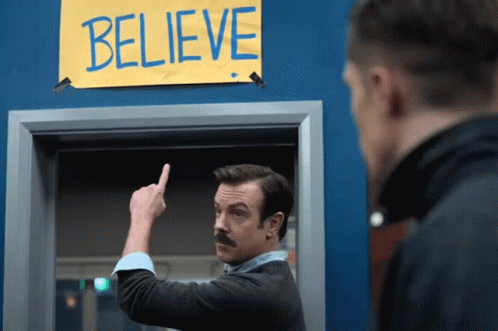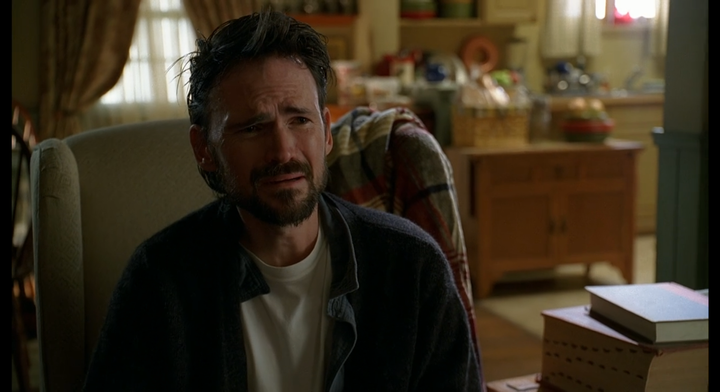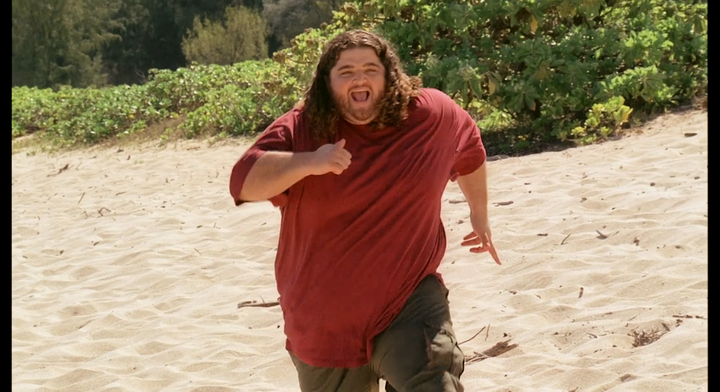A Matter of Spirit
A (probably recurring?) feature, in which I use the newsletter format to expand upon a single tweet from last week.

Note: this essay was originally published on Revue on October 4, 2021.
Last week I wrote about the tolerance of intolerable things, and how this tolerance is at least part of what permits these intolerable things to exist. Instead of focusing on recommendations for specific action, I suggested that refusing to tolerate the intolerable is the most impactful thing you can do.
This might warrant more explanation.
The tweet I’m expanding isn’t one isn’t from last week, though it’s recent. Here it is:

Don't fall into cynicism or despair. Believe it can better, make it your expectation, make it your constant demand, and then fight for it where and how you can.
This is primarily a spiritual fight.
You don't need to believe in religion to believe in spirit.
8:19 AM - 4 Sep 2021
I find it useful to think about these struggles in terms of spirit—a term I think is widely misunderstood, because its use by specific religious traditions and dogmas frequently leads people to believe that to believe in spirit is to engage in those traditions, or even believe in the supernatural. My background is a religious one, but you don’t need a religious past, or a religious past for that matter, in order to understand what spirit is.
In truth I’d argue “spirit” is something that is widely understood and widely observed.
Here’s how I would define it: Spirit is what happens when groups of people create collective belief and translate that belief into action.
We talk about the spirit of a law—how a law is written to do one thing, but is often, because of applied collective human will, used to do another thing. In other words, there’s the difference what the law says (or even what the people who wrote it intend) and then there’s what it actually does, which reveals the deeper intentions of those who enforce it and carry it out and benefit from it.

Critical Race Theory, at its heart, notes that seemingly race-neutral laws can, in fact, be racist in their intent and application.
If that seems a shocking, new assertion to you, read this passage from white southern lawyer Sidney Fant Davis's Mississippi Negro Lore (1914): https://t.co/CIs3fRzXXw
12:25 PM - 30 Sep 2021
That’s spirit. Completely void of religious context, we call it spirit.
And we talk about team spirit—the way that a group of people can come together to achieve goals beyond what might have been expected of them given their experience or talent … or the way a team can fall apart and fail to achieve objectives that seem as if they ought to have been easily within their grasp. In fact, one of our most popular current television shows is a tale of a coach, brought in for engineered failure, but who provides an unexpected value, not because he understands the game (though really Ted you ought to at least try to learn) but because he is able to create an environment in which the people in his organization stop feelings like players and staff, and start feeling like a team, start feeling connected to a purpose greater than themselves.

That’s spirit. Completely void of religious context, we call it spirit.
Or we talk about how something is done in a certain spirit—a spirit of joy, a spirit of generosity, a spirit of anger, a spirit of violence. It’s a way of saying that the way the results of your actions reveal the underlying intent.
Or let’s think about something in the news today. Let’s think about means testing.
Means testing is a way of constraining some public aide providing a basic human need, to make sure that only those who need it receive it, which seems sensible enough. But there’s a problem—a spiritual problem.
Making sure that everyone hungry is fed is an urge that springs from a spirit of generosity, of plenty, of care, a spirit that believes that every person has intrinsic worth and dignity that must be honored.
Making sure that only those who deserve it receive it springs from a spirit of lack, of control, a spirit that believes that life must be earned, and that receiving basic needs are a matter of deserving them.
It seems counterintuitive, because the purpose of means-testing seems to be to avoid letting people of means use something meant for those without.
But abusive wealth doesn’t want free school lunch—they aren’t in public school. And when we means test, we create hurdles that those of means have easily already overcome with their resources, which those without can’t. We make it harder to do thing we’re ostensibly trying to do, for everyone.
And, we’ve learned, means-testing actually costs more than simply making basic needs open and available. We spend money we could spend on feeding people making sure only the right people are fed.
We’re acting in a spirit of greed. We’re aligned with abusive wealth.
What abusive wealth wants is for all of us to enter into a spirit in which receiving basic human needs are a matter of deserving them, because they want life to be something that is earned. They want hungry people to control, and they are willing to pay for it.
Means testing seems designed to keep greedy people of means away from good things they can afford, but at a far deeper level, it is entirely aligned with greed.
Yet so many of us desire means testing anyway. Why?
Because we’re not actually worried about hunger.
We’re worried somebody might get something they don’t deserve.
And we want to control that.
Spirit.
Again, you don’t have to believe in ghosts. You don’t have to believe in any religious tradition or dogma. We can all see it. Spirit.
People collect, and they join their belief to something, and that belief leads to collective and individual actions, and those actions start exerting actual real life effects, and eventually create a context for what is and is not permitted, worthy, valued, or even possible. Spirit creates something more powerful than individual belief or individual intent, and while it might seem mysterious, it’s very real, and it’s observable.
Incidentally, one reason I find “spirit” such a useful construct through which to understand struggle is to understand that we are, at the core, fighting against contemptable ideas, not contemptable people—even though some people have made themselves contemptable through their adherence to contemptable ideas, and sometimes it becomes necessary to fight not just a malicious idea but people captured by it. This is probably an essay of its own.
Spirit is, quite simply, how human beings make things happen socially. And what human beings have done socially has a direct impact on what your options as an individual are. Can you do things outside the context of what humans do collectively? Try. Try replying to this newsletter completely individually, without using any of the systems and developments and philosophies that human beings have made together over the centuries. Try to imagine the humans who made those systems and developments doing so without the use of previous developments advanced by those who came before, or without acting against those developments to change them.
You can’t do it. I wrote it within that context, so you can’t possibly read it outside of that context, much less reply.
Technology, infrastructure, laws, norms, morals, philosophies, beliefs, stories, … spirit.
People collectively decided to believe in something. That belief created actions. Those actions had an effect. That effect generated an atmospheric context for what is and is not possible. The thing that spirit created became the way things are, which defines what possible is.
And when things are kept the way they are, even against clear need or overwhelming evidence, that maintenance of how things are is, first and foremost, a matter of spirit—a collective human gravity to keep things as they are.
The church leaders who persecuted Galileo were guided by spirit, and they enforced it with violence.
Galileo was guided by spirit, too—a spirit of truth.
Eventually the truth won out, and, as it became increasingly possible to move in a world where the earth’s place in the cosmos was more correctly understood, it became increasingly impossible to move in a world in which the earth was incorrectly understood to be the center of the cosmos.
Human behavior changed toward things that were already true, which loosened some (better, truer) possibilities and bound some (worse, less true) possibilities.
You might say the spirit moved. Another concept used in religion that requires no religious belief to observe.
Before spirit moves, though, first it has has to decide to act.
And before it decides to act, it has to believe that it can.
How did it believe it could? Through individual people believing something, and joining with others in action over that belief.
So first comes belief, and then will, and then action, and then change, and then comes a gravity, which creates a sustainable context.
And you might start to understand how religious traditions got the idea that spirit works on belief.
Maybe it’s because it actually does.
This is true both for change that frees millions of people and change that murders millions of people. Both begin with spirit. And you might start to understand how religious traditions got the idea that there are good spirits and evil spirts. Maybe it’s because there actually are.
You might think of it this way: all human movement is driven by spirit … but not every spirit has a soul—by which I mean a commitment to truth, and to the intrinsic dignity and value of human beings. The Civil Rights Movement began as a matter of spirit. So did the Third Reich.
Both movements claimed good intent. But their words and actions revealed their true intents—the spirits of the movements.
One spirit was about liberation. The other was about murder. And both moved toward the destinations sought by those who joined with them.
So the question becomes: what do you believe, and how does that belief translate into action?
The specific actions themselves, I can’t tell you. You’re you. You have a specific situation and specific skills and resources and privilege. Maybe you need to run for office, but maybe you know you’d be bad at that. Maybe you are best at spreading awareness to the confused. Maybe you need to write long newsletters reframing matters of , or maybe finding the right words isn’t your thing. Maybe you need to call your reps. Maybe you need to march. Maybe you need to shout. Maybe you need to make your voice silent so others can be heard. Maybe you need to be nonviolent. Maybe you need to fight. Maybe you have a lot of money and you need to give to bail funds and activist organizations. Maybe you have influence and power and prestige, and you need to use them to confront injustice, or maybe you need to give up your outsized influence so others can have a larger share.
Maybe you just have to give a shit, rather than to decide that the safer thing is to find a reason to be apathetic or cynical—two states which people of bad intent would most prefer for you.
Maybe you are in a compromised position under active threat and you just need to keep yourself safe and alive.
Maybe you need to take extreme action to keep people under active threat alive. Maybe you’ll surprise yourself. I doubt Miep Gies expected to become a lawbreaker, which is what she was. I doubt she imagined she’d build a secret room in her house in defiance of a genocidal police state.
I think in an age guided by a spirit of murderous order, she was guided by a spirit of truth and hope. Truth that every human being carries an intrinsic value more important even than order or law. Hope that things can get better.
And yes, our age, too, is guided by a spirit of murderous order. What will you do?
The first thing you need to do is the most important thing, the most impactful, and it’s the one I know all of us can do. That’s to detect and understand the spirit you are joining, and to change that spirit if it needs to change to a spirit of truth.
The actions will follow.
Perhaps you believe that change is possible, or perhaps you don’t.
Perhaps you believe government is first and foremost a way of organizing to care for the public good, or perhaps you believe it is first and foremost a matter of not wasting money.
Perhaps you believe that every person is a unique and irreplaceable work of art carrying immeasurable intrinsic worth. Or perhaps you believe that life must be earned.
Perhaps you believe that all people are one family. Or perhaps you believe that the foreigners are here to replace us.
Perhaps you believe that the world is a fine place, and worth fighting for. Or perhaps you just like to say both sides are right and wrong, and the truth is somewhere in the middle, and the greatest good is to not be divisive.
The first step in solving a problem is wanting to solve it. Yes, and plenty of people don’t want to solve it. Some of these choose denial or defiance or apathy. Others, wanting to seem more reasonable, choose pragmatism, and use a Zeno’s Paradox of irreducibly tiny steps toward progress as a way of avoiding ever reaching progress at all.
And so it become very important to detect and understand the underlying spirit of what you participate—action and belief. In fact, it’s the most important thing you can do.
This is how Donald Trump has changed the country, by the way. You might say “there’s been no change; this is how America always was.” And it’s true, the world’s least creative mind didn’t just create a movement. However, I’ll point out that there sure does appear to be a lot more proud and open Nazi talk from mainstream media and political figures than there used to be.
So let’s reframe what has happened around spirit. Let’s say this instead: For political gain, the Republican Party deliberately utilized one of our oldest spirits—one of genocide and slavery, one that has never been dormant—and this calculated decision allowed Donald Trump, with a genius for gross opportunism, to take it and energize it, and to move us on a path of celebratory regression, back toward some of our most shameful past crimes, on a trajectory to become something worse than we’ve ever been.
What is possible has changed, and we are increasingly expected to tolerate intolerable things.
But there are other spirits in our society we might energize. The great dream of the Civil Rights Movement. A poem upon a statue in the harbor. Words of equality written on foundational documents. Spirits of liberation and truth, which we’ve never lived up to, but with which we might join to effect change.
Spiritual movement is how we can change our society again, toward our finest aspirations for ourselves, into something better than it has ever been.
We can change what is possible, too.
It’s worth noting that you can tell the people who don’t want us to change it into something better than its ever been attack, as a first priority, the belief that it could ever be that better thing, or that change is even practical or desirable.
What spirit are you joining with?
I don’t think you get to choose not to join, any more than you get to choose not to be affected by gravity.
I think human beings are spiritual beings, by which I simply mean that they carry a specific vital sphere of influence that will join with some spirit or other, whether they choose to do so or not.
In fact, I think not choosing is its own form of joining. But I’ve pushed far past 1,000 words, so let’s put that topic somewhere in the future.
I love the future. It’s where I keep a lot of my stuff (my fifties, for example) and I intend to fight to preserve it.
Have a good morning, friends. Drink some coffee if that’s what you do.
-Andrew
_______________________
Oh by the way, I’m on the latest episode of the Bookfight podcast talking about Michael Ondaatje’s novel “In the Skin of a Lion,” which is, in my opinion, very good. The Bookfight podcast is an old favorite of mine, which I’ve been listening to long before I ever dreamed of being a guest, so it was a lot of fun to join hosts Mike Ingram and Tom McAllister on it, even if I’m terribly self-conscious of how my thoughts come out when I speak extemporaneously rather than organizing them on the screen or page.
_______________________
A.R. Moxon is the author of The Revisionaries, which is available in most of the usual places, and some of the unusual places. He’s worth a million in prizes.




Comments ()